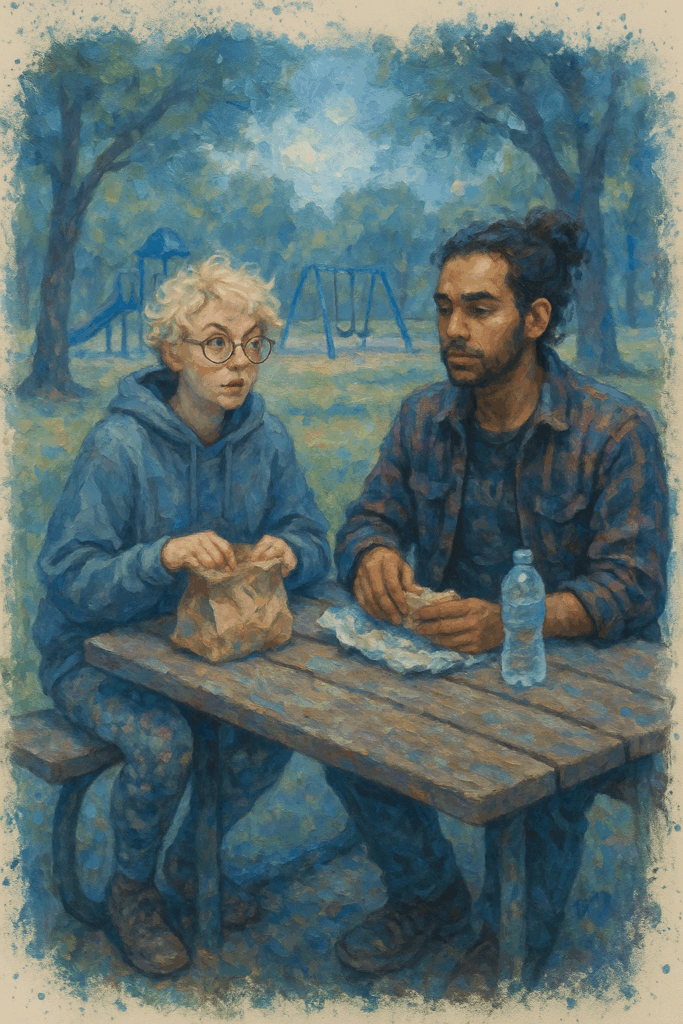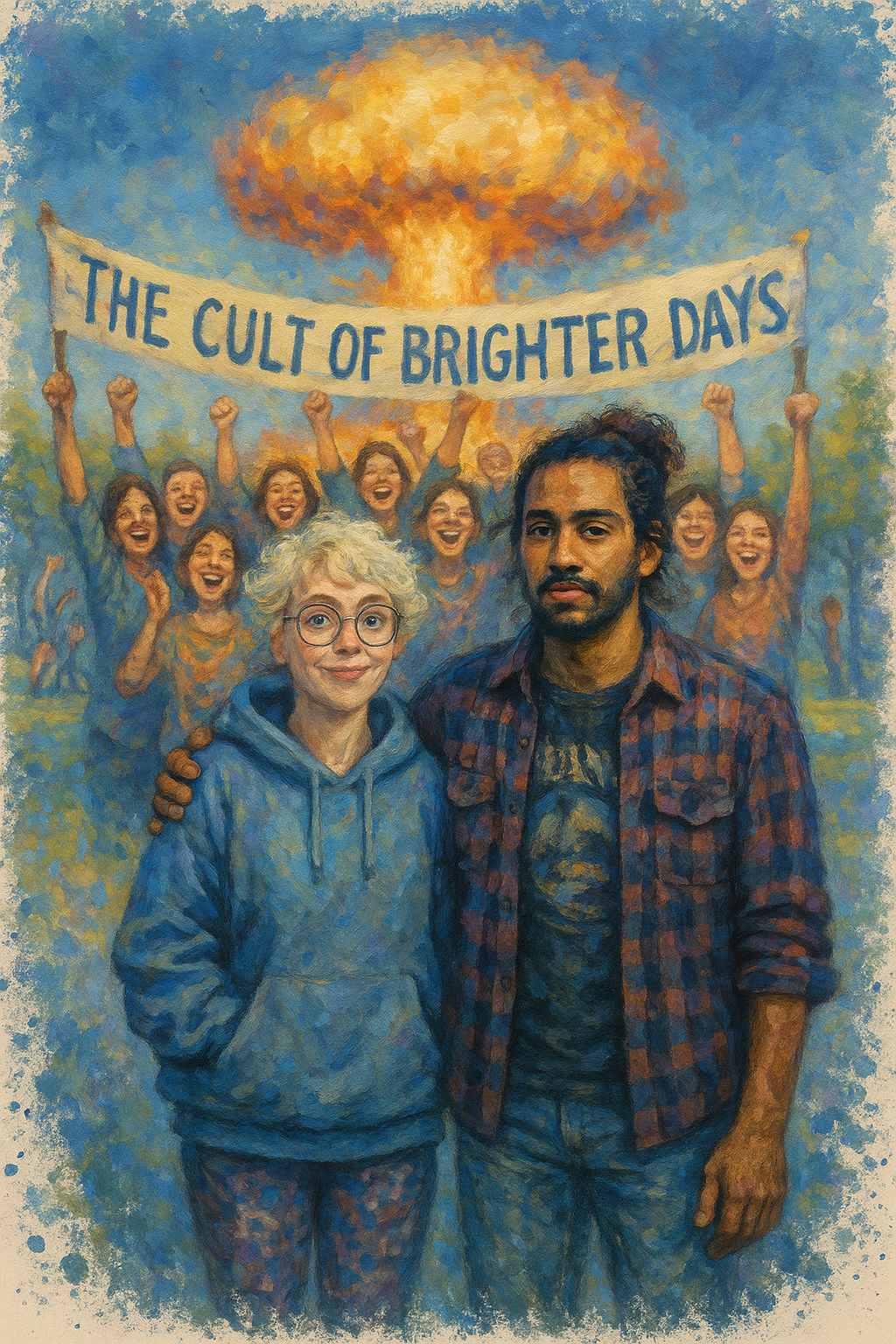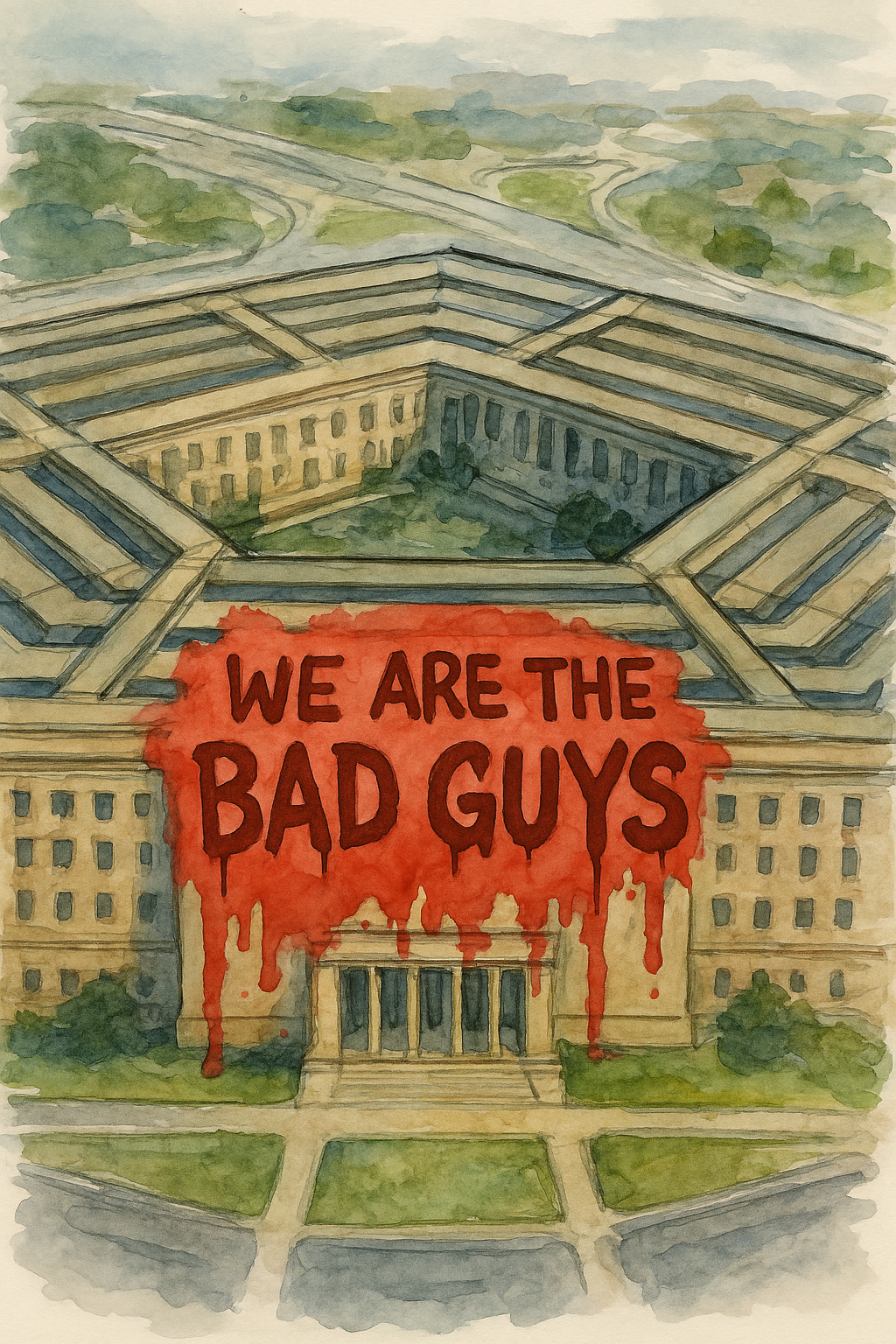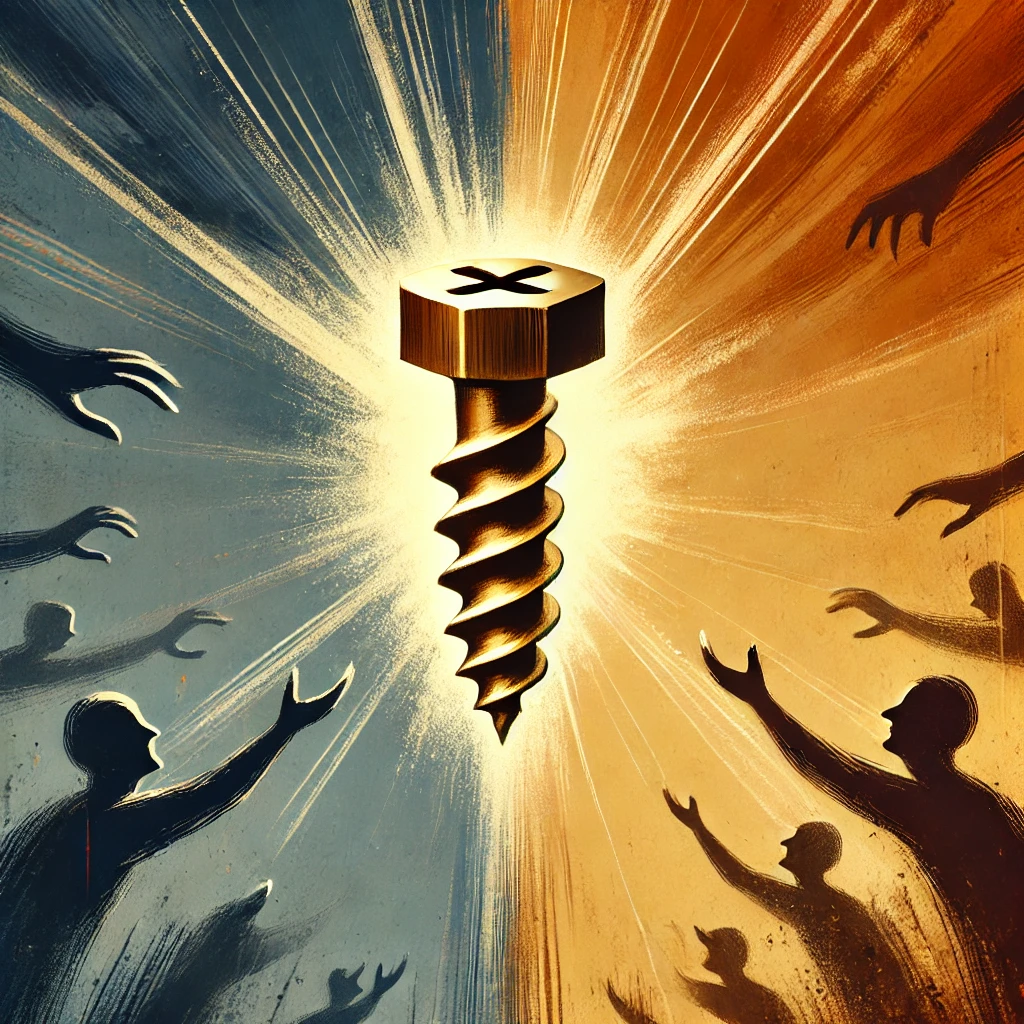(Editor’s Note: Yes, a cult. No, not that kind. Unless by “that” you mean the kind that fights capitalism with ADHD-powered metaphors and organizational anarchy. Then yes, exactly that kind.)
What if your inability to “just be normal” is the holiest part of you?
What if your sensory overwhelm isn’t a malfunction, but a cosmic tuning fork ringing too loud for a world dulled by noise?
What if your obsessive rituals are ancient magic—
your shutdowns are sacred silence—
your spirals, your stims, your high-speed brain chaos are neuro-electric liturgies?
We’ve been taught to believe that neurodivergence is a deficit.
That our brains are broken.
That we’re inconvenient, disruptive, too much.
But I’d like to offer a theological counterpoint wrapped in a fluorescent sticker that says NOPE:
That’s not science.
That’s bad religion dressed in lab coats.
Neurodiversity isn’t dysfunction.
It’s resistance.
It’s adaptation.
It’s signal, not noise.
At The Cult of Brighter Days, we don’t pathologize neurodivergence.
We witness it.
We revere it.
We document it like a sacred text written in spiral notebooks and late-night voice memos.
Let’s name what gets erased:
- The person on the spectrum who scripts conversations like symphonies? Syntax architect of social survival.
- The OCD brain crafting rituals to keep chaos at bay? Sacred engineer of psychic infrastructure.
- The bipolar mind navigating mania and collapse? Barometer for a planet flipping between extremes.
- The ADHD soul ping-ponging across timelines and tangents? Quantum detective solving existential puzzles sideways.
- The dyscalculic student building intuitive math through motion and metaphor? Numerical shaman in a world obsessed with precision.
- The Tourettic communicator whose body defies stillness? Channel of unfiltered truth.
None of this is brokenness.
It’s the blueprint for surviving a world that demands collapse in exchange for conformity.
Neurodivergent Brains Don’t Comply—They Prophesy
What makes neurodivergence sacred?
It refuses performance in a world that rewards masks.
It restructures logic into fractals and feedback loops.
It creates art from overwhelm and truth from discomfort.
Neurodivergent people don’t ask “How can I be better at faking it?”
We ask:
“Why was I required to fake it in the first place?”
We are not failed neurotypicals.
We are successful mutants in a hostile timeline.
Let’s Flip Every Damn Diagnostic Script
We stop asking:
❌ “How do I fix this?”
And start asking:
✅ “What is this experience trying to teach me about the world I’m in?”
Because when your brain refuses linear time, maybe it’s honoring cycles, not schedules.
When your energy surges and vanishes without warning, maybe you’re tuned to weather systems no one else can see.
When you find solace in repetition, in motion, in sound, in pattern, maybe that’s not a “symptom.”
Maybe it’s a ritual.
Maybe it’s exactly what keeps your nervous system tethered to something true in a world that won’t stop screaming.
And when people call that “weird”?
We call it language.
Movement is language. Pattern is language. Silence is language.
Your form of expression is already complete—the translation problem belongs to them.
Sacred ≠ Suffering in Silence
Let’s be clear.
Saying neurodivergence is sacred doesn’t mean neglecting care.
It doesn’t mean “just embrace your pain and vibe through the chaos.”
No.
We believe in therapy, medication, support systems, assistive tech, coping strategies, and professional scaffolding—
Not to erase your wiring, but to build bridges between you and a world that still expects sameness.
Treatment isn’t betrayal.
It’s translation.
It’s giving yourself the tools to thrive instead of just survive.
It’s not about becoming more “functional” for someone else’s convenience.
It’s about reclaiming your agency.
If your meds help you find quiet in your mind—
That’s sacred.
If your therapist helps you unlearn shame and build scaffolding—
That’s sacred.
If your planner, your sensory tools, your support group, your 2 a.m. stimming playlist on loop—
all keep you tethered to yourself?
That’s sacred practice.
If Neurotypical Is Normal, Then Normal Is the Problem
This isn’t an identity.
It’s an uprising.
We aren’t here to beg for inclusion.
We’re here to build new systems, shaped around the wild truth of our wiring.
We want classrooms that understand info-dumping is communication.
We want workspaces that accommodate shutdowns as sacred rest, not laziness.
We want communities that let us stim, spiral, unmask, or ghost out—without penalty.
Because ADHD isn’t a deficit.
Autism isn’t a problem.
Bipolar isn’t a broken thermostat.
They’re all evidence that the world is running on the wrong operating system.
And we? We’re the rogue code that refuses to assimilate.
Final Sermon (Now With Bonus Echolalia)
You are not a malfunction.
You are a sacred system in a heretical world.
The problem isn’t that you can’t keep up.
It’s that the world was never meant to be livable at this pace, under this weight, within these narrow definitions.
Your spirals are sacred.
Your shutdowns are sacred.
Your intensity, your focus, your aversions, your stimmy dances, your tangents, your meltdowns—
All sacred.
Welcome to the Cult.
We don’t just believe in neurodivergence.
We build theology around it.






